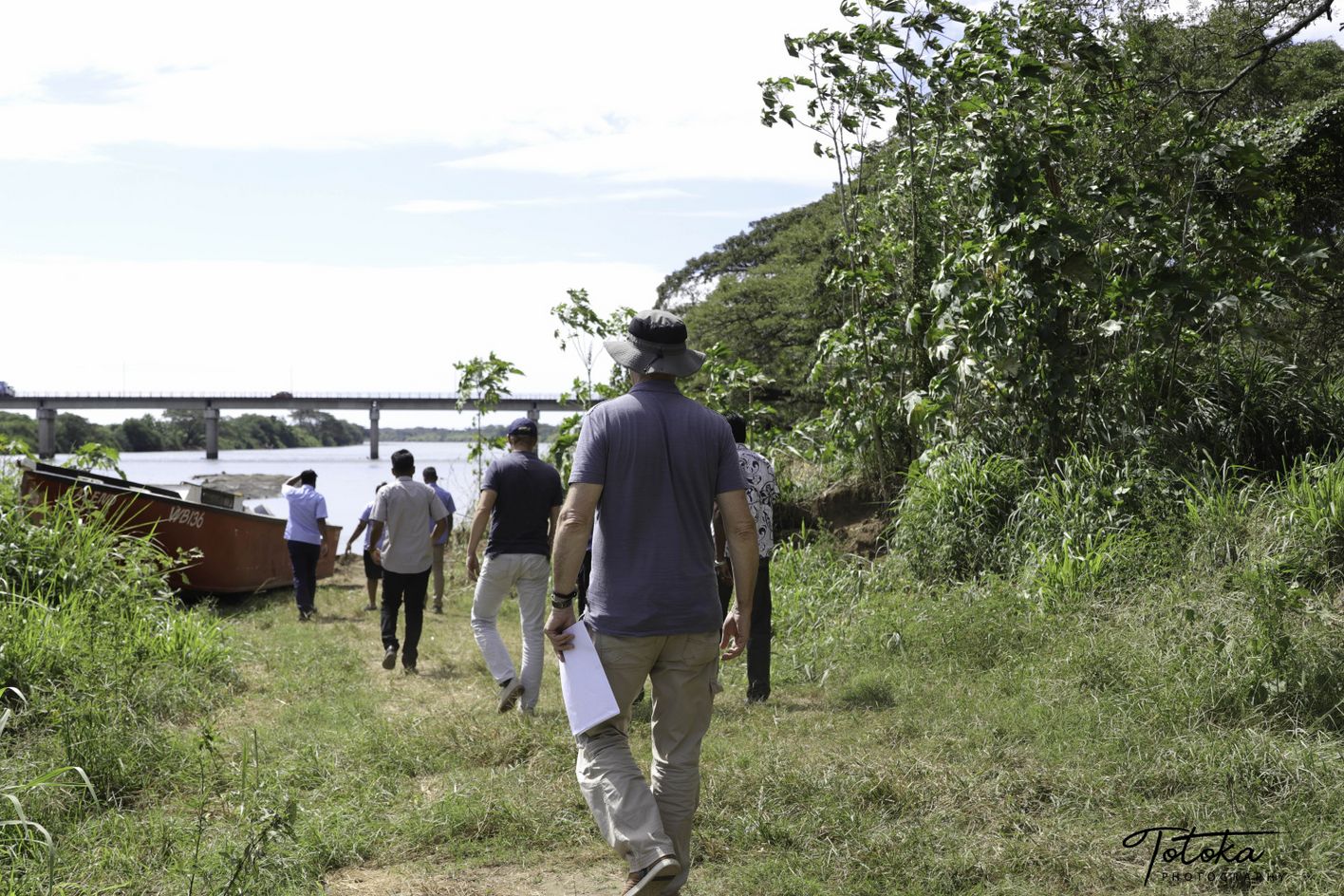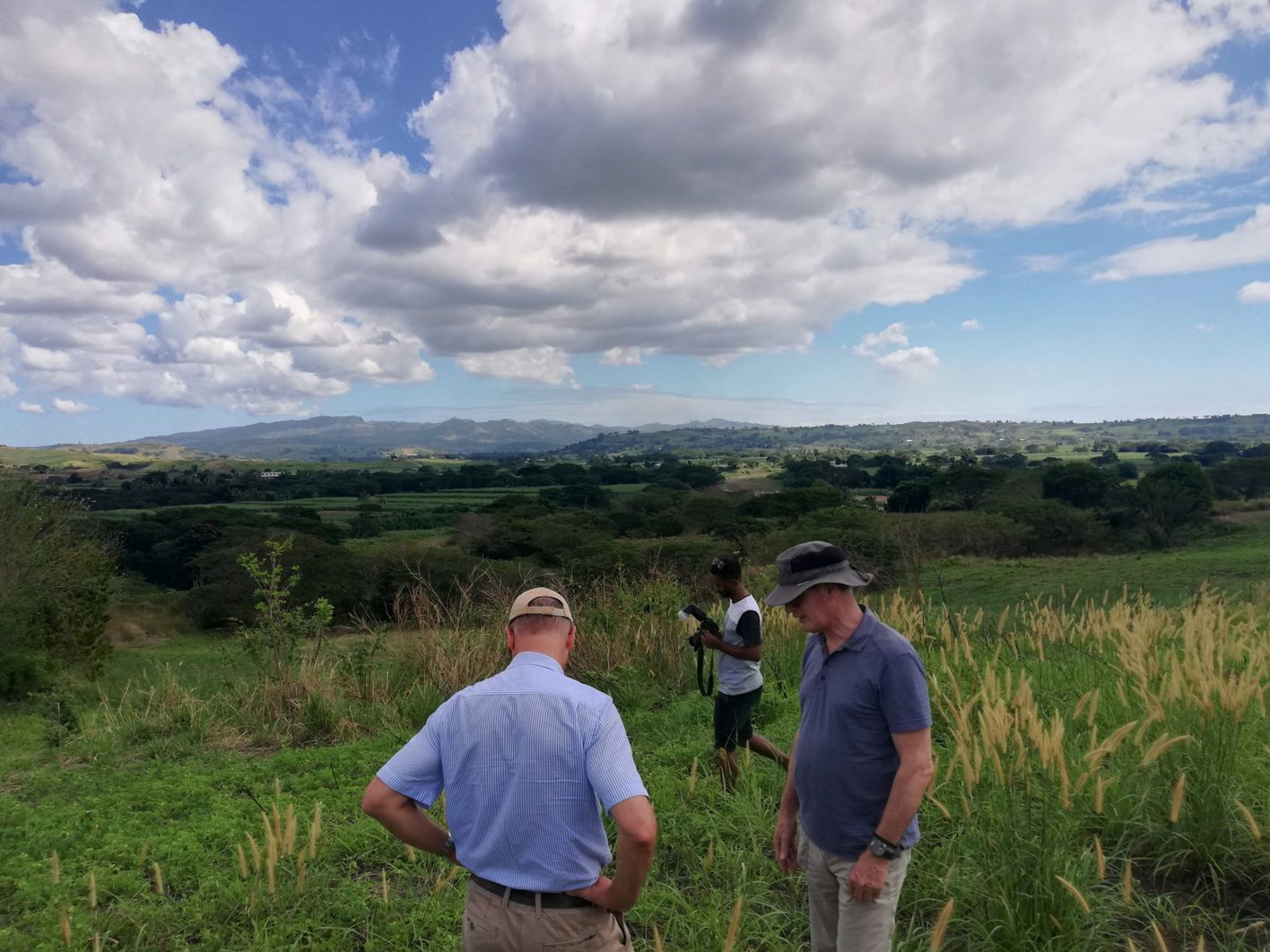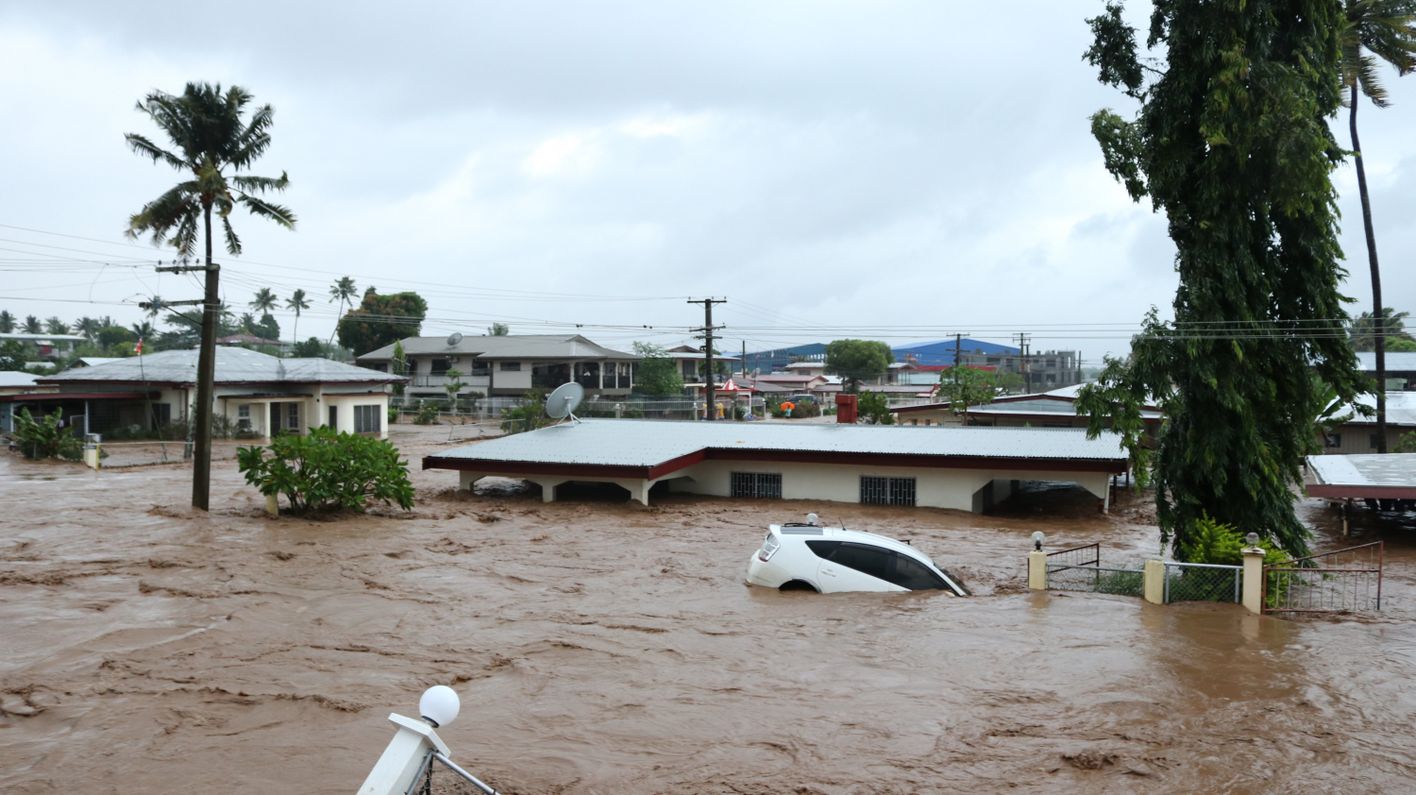Published on 07 May 2020
Dutch Risk Reduction Team: solutions for disasters and reconstruction
How do you make drinking water and sanitation less vulnerable to natural disasters? What can you do to cope with the increasing volatility in weather patterns? What measures can we take to prevent possible dam breakthroughs? These are just a few of the questions in the field of water management, water safety and water supply that Witteveen+Bos experts are confronted with during their participation in the Dutch Risk Reduction Team (DRR) mission.
The Dutch Risk Reduction Team is an initiative of the Dutch government, in collaboration with the Dutch water sector. Extreme water-related disasters are becoming more frequent. As a result, the demand for water expertise is increasing. The Dutch water sector has a pool of experts that can be called upon as soon as a request is received from the Dutch government to advise on urgent water problems. The Netherlands Enterprise Agency organises the deployment of the teams. It is not about emergency aid, but about advising on the reconstruction or prevention of a (new) water disaster.
Damburst Brazil
Several Witteveen+Bos employees have taken part in DRR Teams in recent years. Joana Vlaanderen and Joost Lansink were part of the team that was asked for help and advice by the Brazilian government following a damburst in Brumadinho in the state of Minas Gerais, in the southeast of Brazil. The dam was used to store tailings (material left over from the mining process), in this case 12 million cubic meters. In the process, 256 people lost their lives and people are still missing. The dam breach also caused considerable damage to the economy and the environment.
The W+B people visited the area twice, in October and November 2019. The urgency is high: in the state of Minas Gerais there are 420 tailing dams in a 100 kilometre radius around the capital Belo Horizonte. Fifty of these dams were built using the same method as the dam that was broken. There is therefore a fear of new dike breaches.
Intrinsic motivation
For Joost Lansink and Joana Vlaanderen it was the first mission. Joost Lansink: 'In the Netherlands I'm involved in raising dikes, sometimes only 30 centimetres, to perfection. In Brazil, we visited dams of 100 metres in height, which were sometimes barely the subject of design calculations and research. The chance of such a dam breaking is considerably greater and the consequences are incalculable. To contribute with our knowledge to the prevention of such dam breakthroughs gives a lot of satisfaction. The scale on which you work there, where people live and the social impact, is very different from a programme like Room for the River in the Netherlands, but there are certainly parallels to be drawn. I am happy to contribute to that with our knowledge.' Joana Vlaanderen agrees: 'It's all about knowledge sharing. The approach of the Brazil mission was: how can we prevent possible new disasters? What can we do about prevention to ensure that a dam never breaks through again? And how would we tackle that, with our expertise?’
As an engineer we can make the world a little better. It's rewarding work. You hope to plant a seed, with smart, robust solutions to protect people against disasters.
Fred de Bruijn
DRR-veteran
Fred de Bruijn, business unit manager water supply, has taken part in three missions in recent years, including one as mission leader. In 2015 he was a member of DRR Team Vanuatu and Kiribati and in August 2016 he was a member of the team that visited Palau. In August 2019 he was project leader of the mission to Fiji. Fred can be considered a veteran when it comes to DRR missions.
The tasks and assignments of DRR Teams are varied and multifaceted. At Vanuatu, the team researched how drinking water and sanitation facilities can become less vulnerable to natural disasters. At the time, the clean water supply was partly shut down by cyclone Pam.
In Kiribati, which is vulnerable to sea level rise, sand is removed from the beaches, resulting in erosion and disturbance of the natural balance. In Kiribati, which is vulnerable to sea level rise, sand is being removed from the beaches, resulting in erosion phenomena and disturbance of the natural equilibrium.
The team in Palau advised on the drinking water supply, the related infrastructure and water resource management. In Palau, in addition to heavy typhoons, there are longer periods of drought resulting in rationing of the (drinking) water.
In Fiji, the increasing volatility in weather patterns and behaviour in the river basin is causing increasingly extreme weather events. The team was asked to come up with advice on how to tackle this problem. Fred de Bruijn: 'We advised widening and deepening the river. But that only makes sense if you also carry out recovery in the catchment area, for example with reforestation. If you don't do that, silting up and flooding will continue.
Personal, profit and public
The contrast between personal and public, profit and public, is a factor that every DRR Team is confronted with to a greater or lesser extent. Joana Vlaanderen: 'All kinds of interests play a role. You have to talk to a lot of stakeholders in order to gather knowledge, fully understand the problem and come to a solution. Our first week in Brazil was spent on meetings and interviews with mining companies, the National Mining Agency, the Public Prosecutor and victims'.
Fred de Bruijn: 'The missions are short. They last a few weeks at most. The goal is to quickly put things in order after a disaster, a short technical assistance. What does a country get after such a mission? Advice on how to defend itself better.' The short duration is therefore not a problem. Established professionals are able to quickly get an overview of the situation on site and outline how to proceed. As a DRR expert, in addition to technical knowledge, familiarity and affinity with the local situation and the ability to handle cultural differences and interests is an important criterion.
In the beginning, Joost Lansink felt rather uncomfortable in Brazil: 'We were really placed on a pedestal. Something like: they had their share of flood disasters in the Netherlands and solved the problems, they know what they’re doing. Fortunately, in the end it didn't stand in the way of an equal conversation'. And what also always strikes you is that Dutch people abroad are always received with all due respect if you compare that with the sober bread meal with a glass of milk we present them. We can learn a lot from that!’
Fred de Bruijn: 'You have to remember why you are taking part in a mission. As an engineer we can make the world a little better. It's rewarding work. You hope to plant a seed, with smart, robust solutions to protect people against disasters.'



